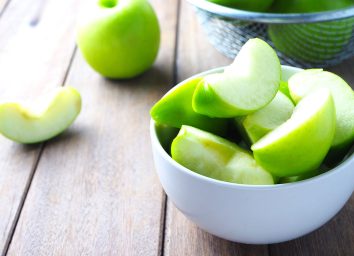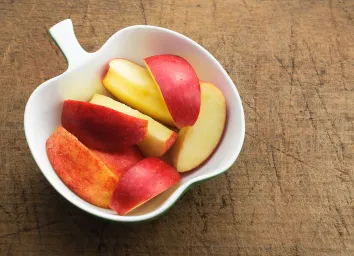6 Ways Apples Can Help You Lose Weight, According to Dietitians
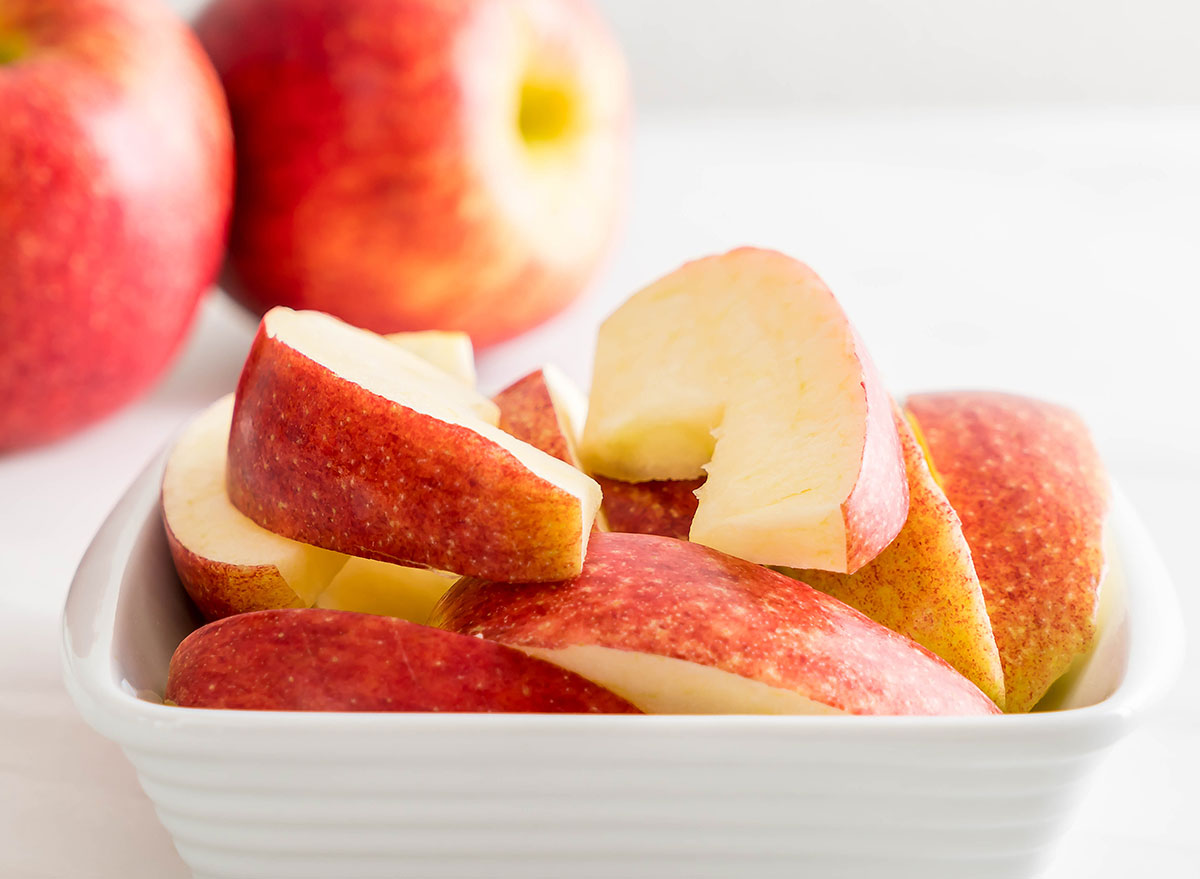
Whether next to a sandwich, packed in a pie, or grabbed as a handy snack, apples might well be America's national fruit. But besides their convenience and their status as a no-brainer accompaniment to a boxed lunch, these shapely fruits have also been associated with weight loss. Some studies have compared the consumption of apples to other foods (even other fruits, like pears) and found that the round, red guys come out on top for helping people shed pounds.
What's that about? Read on to find out why dietitians believe eating apples can help you lose weight. (And while we're talking apples, check out what happens to your body when you eat one every day!)
They're low in calories.
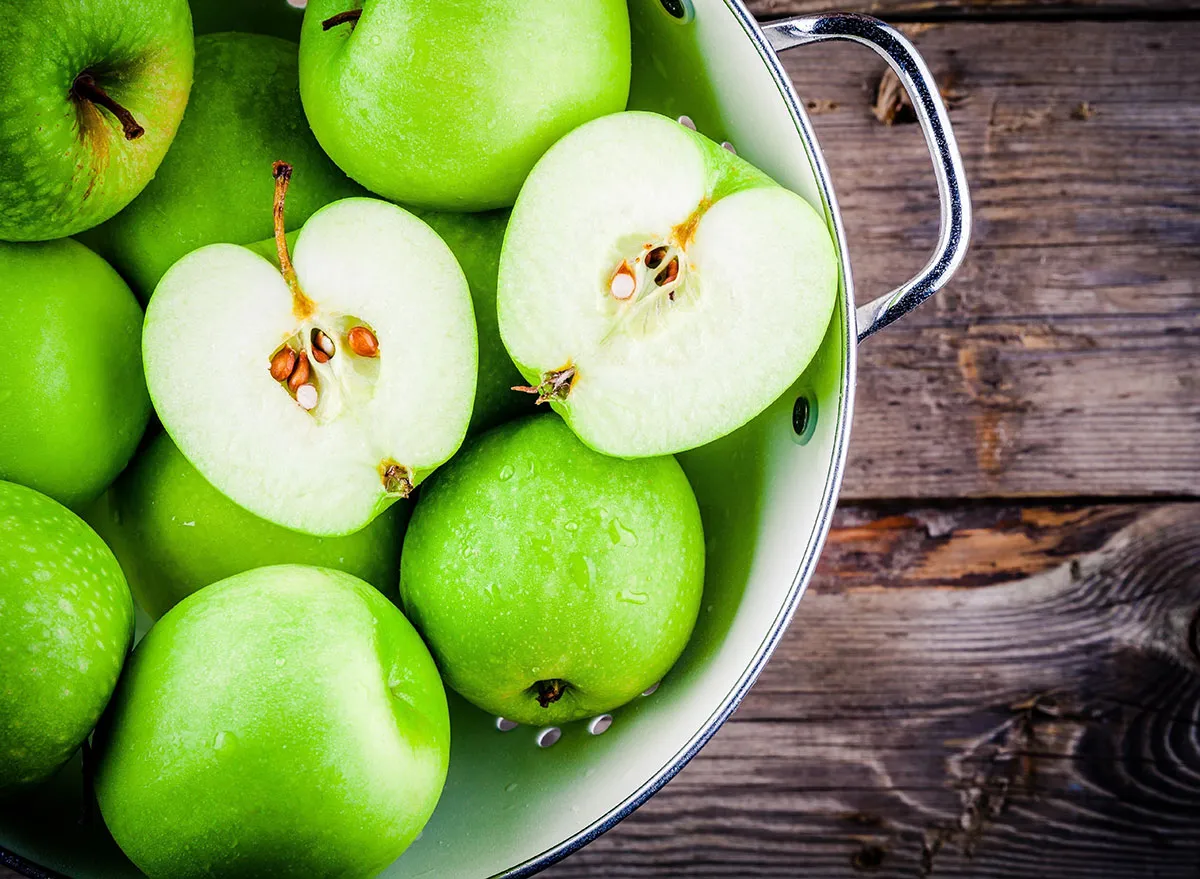
Weight loss can sometimes be more complicated than a simple calories-in versus calories-out equation. Still, there's no denying the importance of caloric intake when you're trying to trim down.
Apples vary in their calorie counts, from as low as 80 in a small Granny Smith to around 125 in a larger honey crisp. But don't worry too much about choosing a low-calorie variety. All apples make an excellent choice for weight loss and health in general—especially when they take the place of other, higher-calorie snacks. "By replacing lower-calorie options with higher-calorie alternatives, your net caloric intake will inherently be lowered, leading to weight loss," says dietitian Elizabeth Gunner, RDN.
Of course, an apple you can nosh in two bites might not be as satisfying as a higher-calorie snack, so if hunger is a concern, combine apples with a protein or fat. "Adding an extra component like almond or peanut butter leads to better satiety, making you feel full longer while also remaining flavorful," Gunner says.
They're high in fiber.
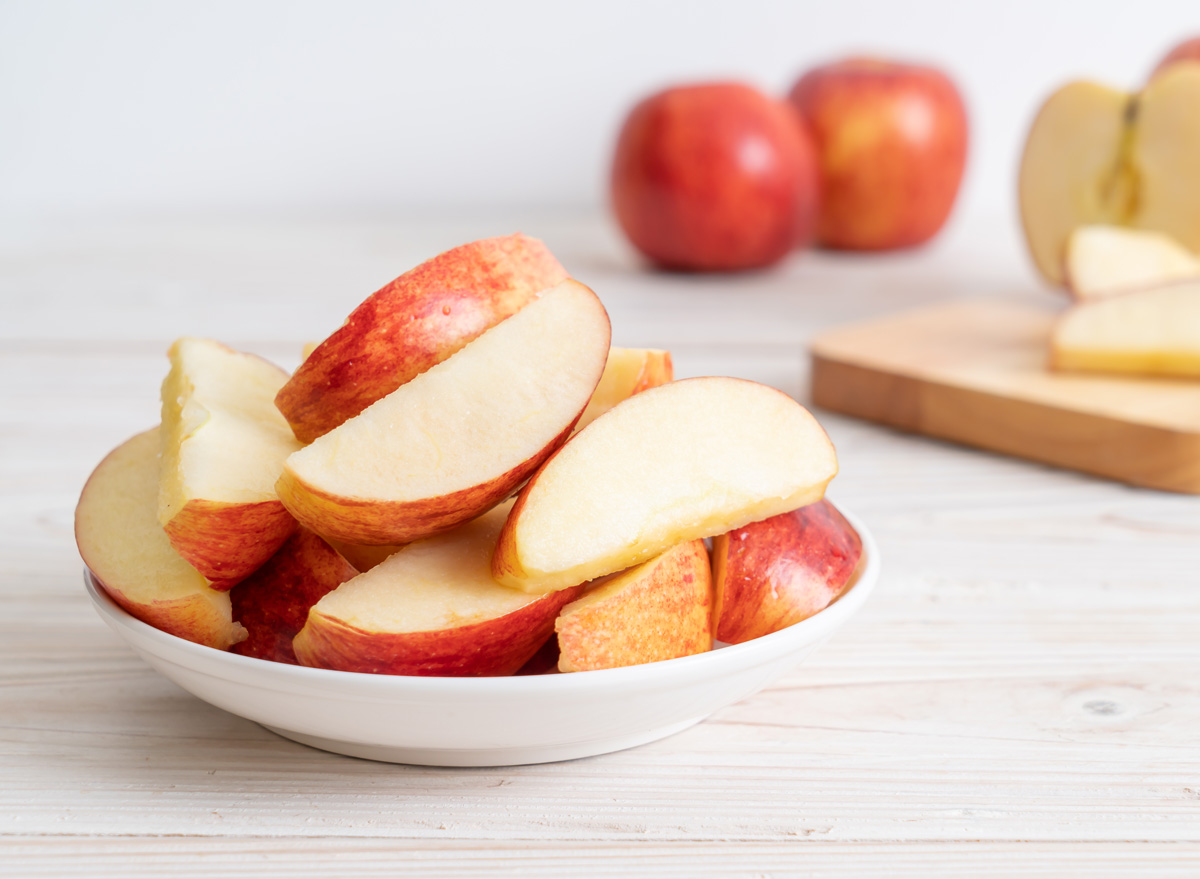
Fiber and weight loss go hand-in-hand, and at around 5 grams per fruit, apples definitely qualify as a high-fiber food. (For reference, that's 20% of the daily fiber target for women and 13% for men.)
"A diet high in fiber aids in weight loss in a few ways," says dietitian Lisa Andrews, MEd, RD, LD. "For starters, fiber is filling, so it helps curb your appetite." Plus, the more fiber you take in from apples, the more you might boost your metabolism via a surprising route: your gut! "Fiber helps promote healthy gut bacteria, which may impact how our bodies metabolize and use energy."
They contain plenty of water.

Staying hydrated doesn't just do wonders for your skin and keep headaches at bay. Studies have shown that increased hydration can contribute significantly to weight loss and fat loss.
In addition to filling your water bottle on the regular, you can keep your hydration up through foods—like apples! The crunchy lunchbox favorites contain about 86% water. "The high water content combined with loads of healthful fiber makes apples a wonderfully filling snack option!" says Gunner.
They have a low glycemic index.
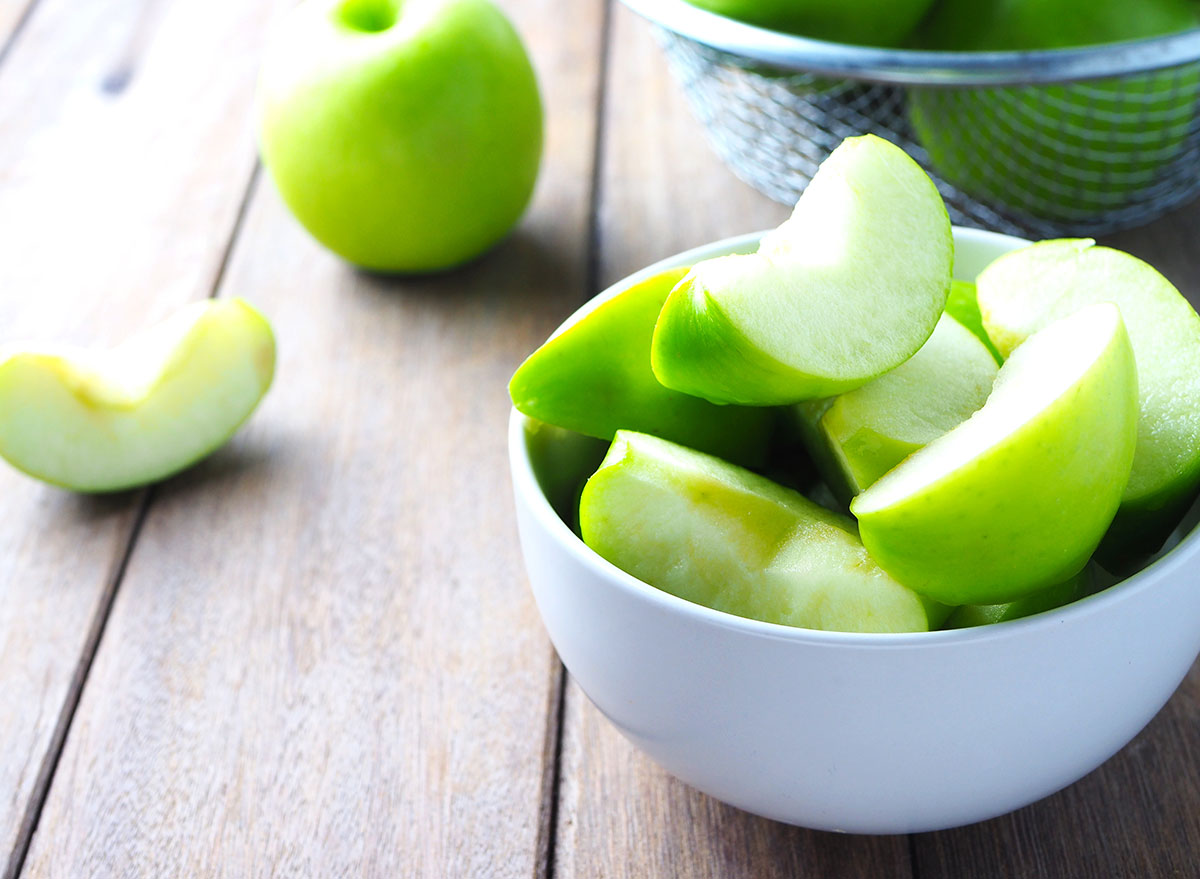
If you don't have to monitor your blood sugar, you might not give the glycemic index (GI) much thought—but if you're looking to drop weight, it can be a handy tool. This scale from 0 to 100 indicates how much a food raises blood glucose within two hours of consumption. Apples are considered a low-GI food with a score of 36.
So, what's the connection between this number and weight loss? "Eating foods with a lower glycemic index may aid in weight management because a steadier blood sugar will keep hunger at bay," explains Andrews. "Foods with a high glycemic index make our blood sugars rise faster, which means we'll secrete insulin to lower blood sugar. When blood sugar is low, we become hungry and want to eat again." Between steadying your blood sugar and promoting weight loss, apples are a win-win.
They're full of antioxidants.
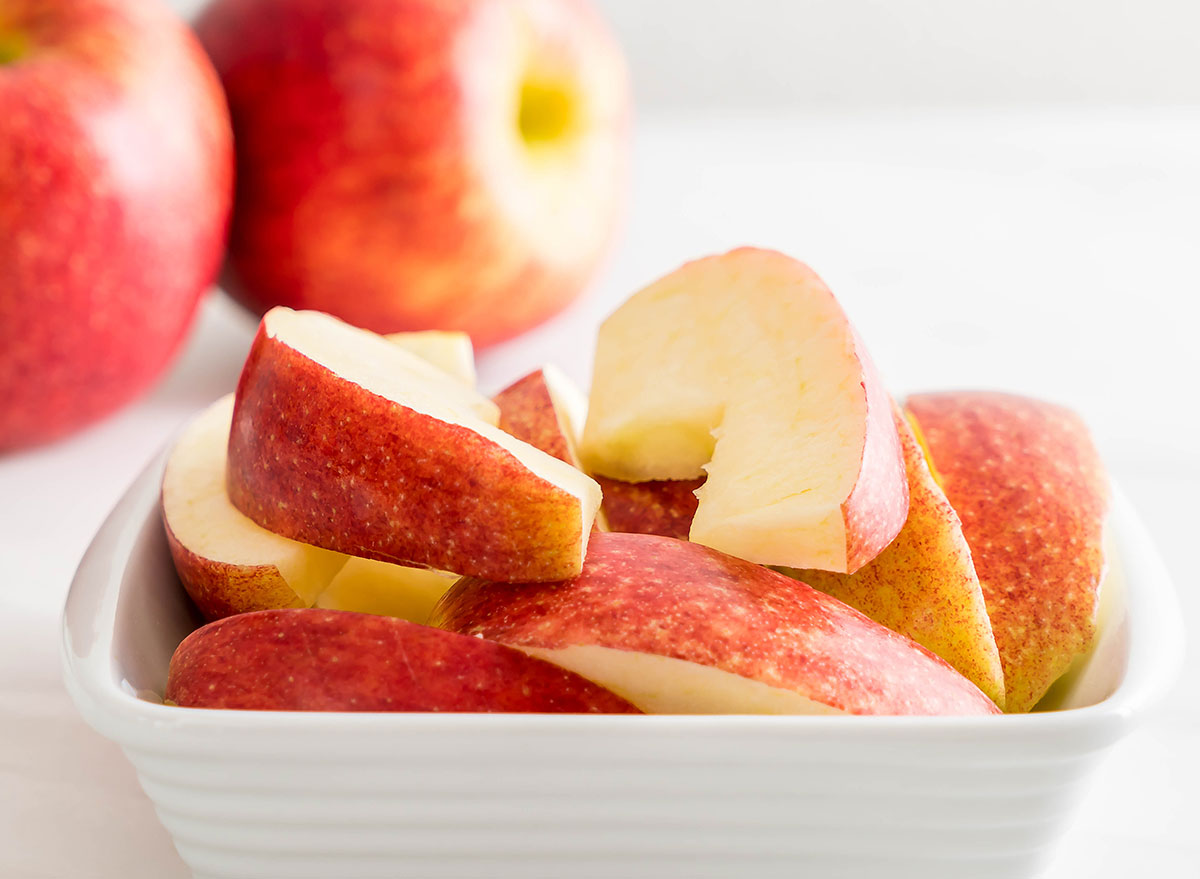
Apples are especially rich in an antioxidant called quercetin, which may reduce inflammation in the body. Reducing inflammation is all well and good on its own, but it might even pave the way for shedding pounds.
"Inflammation is linked with obesity because it may affect insulin resistance—the way our bodies use insulin," explains Andrews. "When we have insulin resistance, our bodies may produce more insulin, which makes our bodies fat. Quercetin may alter pro-inflammatory compounds in the body, and therefore impact insulin resistance." Pro tip: be sure to get the most out of apples' antioxidants by eating them the right way.
They're convenient.

Packing a snack really doesn't get much easier than grabbing an apple as you head out the door. Besides being a godsend on busy days, the fruits' convenience factor might also contribute to your weight loss efforts.
"Convenience is a key aspect when creating healthy lifestyle choices that are sustainable for you," says Gunner. "If the healthy choices you are making aren't convenient for you, then you are less likely to stick to them long-term."
Gunner's hack for eating more apples? "A simple trick that you can implement in your daily life is to make healthy options, like apples, visible and easy to quickly pick up on the go. Placing fruit in a bowl and setting it on your countertop makes the food highly visible. Plus, a fruit bowl in the kitchen is aesthetically pleasing as well!"
For more, check out what happens when you eat too many apples, according to science.
